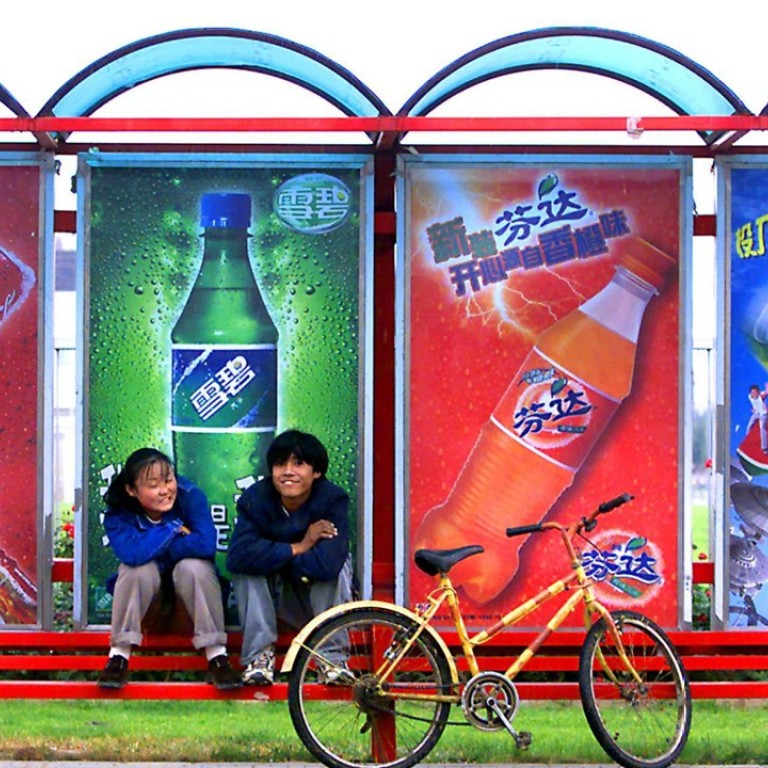
It’s fewer sugary sodas, as health conscious Chinese consumers opt for energy drinks, premium waters
Chinese consumers are gradually turning away from traditional soft drinks, as health awareness guides beverage choices
Chinese consumers are increasingly opting for healthier drink options, including premium packaged waters and energy drinks, forgoing classic soft drinks such as Coca-Cola and Fanta, according to Patrick Healy, managing director of Swire Beverages.
“This trend has become very evident in the past three to four years,” said Healy. “The traditional categories will be seeing single-digit growth, while those newly emerged ones will see double-digit growth rates.”
A division of Hong Kong conglomerate Swire Group, whose businesses span across sectors including aviation, property, and trading, Swire Beverages has been a major business partner with Coca-Cola since 1965, when the unit acquired Coca-Cola’s bottling factory in Hong Kong. The company is one of two major bottling partners of Coca-Cola on the mainland, along with Chinese state-owned giant COFCO’s listed subsidiary China Foods.
After a recent realignment of Coca-Cola’s China business, China Foods now mainly operates in northern Chinese cities including Heilongjiang, Jilin and Liaoning province, while Swire Beverages runs the bottling business of Coca-Cola products in southern areas such as Yunnan province, Guangzhou and Shanghai.
While Coca-Cola is in charge of marketing and advertising activities of the Coca-Cola brand and its products, Swire Beverages focuses on delivery and distribution, according to Healy.
He said there is no major difference in consumption patterns between northern and southern China, as both regions are showing a preference for healthier drinks.
“We now sell around 65 per cent of all sparkling soft drinks in China, and we are also the market leader in juice products,” he said. “But we have not become the leader in other non-traditional categories which is a target we will work to achieve.”
“Performance [of products] within the non-alcoholic beverage segment is very different, with an overall trend towards healthier beverages,” said Steven Kwok, associate partner at OC&C Strategy Consultants.
“For example, bottled water and sports drinks both registered double-digit value growth, whereas carbonated drinks have been essentially flat,” said Kwok.
Currently, China’s soft drink market is highly fragmented, with major foreign and domestic players including Coca-Cola, Pepsi and their domestic rivals such as Hangzhou-based Wahaha, as well as Nongfu Spring, which manufactures affordable bottled waters for around 3 yuan (46 US cents).
Meanwhile, premium mineral waters such as Evian, Fiji and Perrier, which fetch around 10 yuan per bottle, have built up a loyal consumer base over the years.
“This field has become a key battleground for brands not only Pepsi and Coca-Cola, but also Nestlé and Red Bull,” said Zhu Danpeng, an associate with the China Branding Research Institute.
“Looking forward, low sugar or sugar-free, low calorie will become the dominant trend in the sector,” he said.

